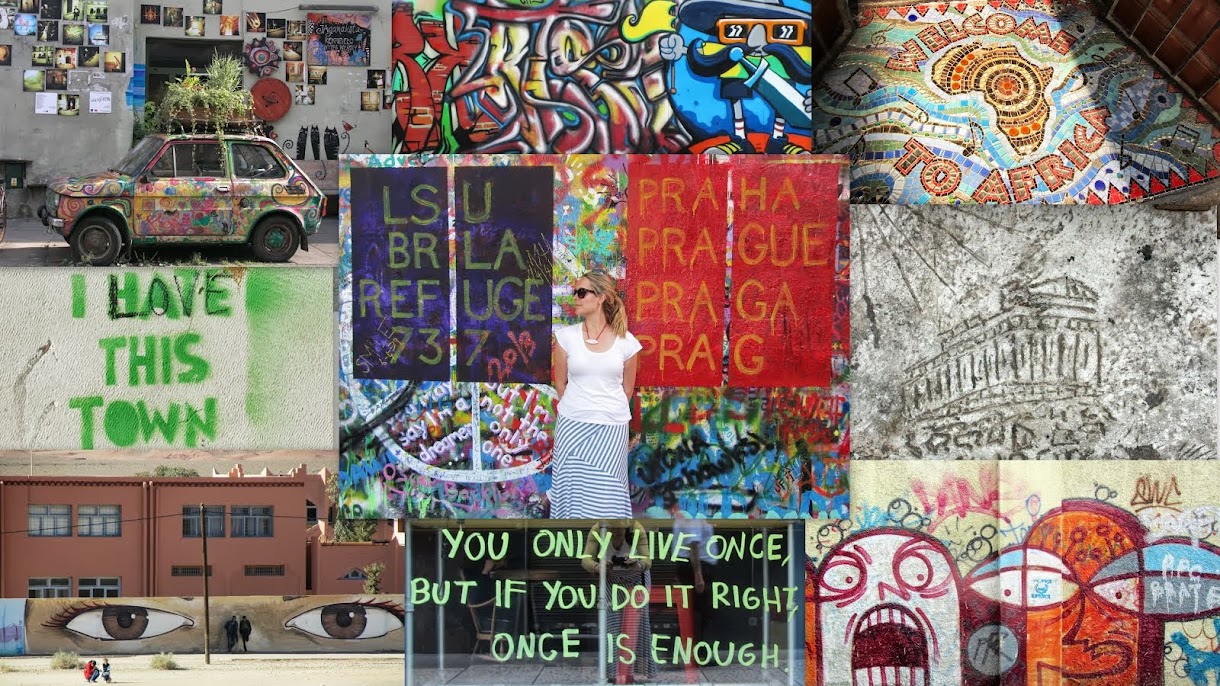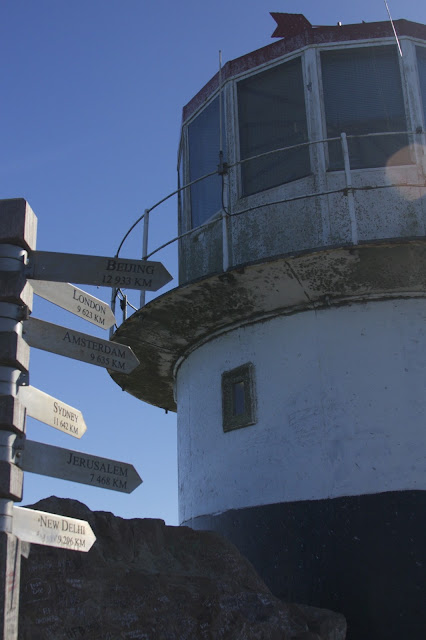The Cliff's Notes version of the history of white men in South Africa goes a little something like this:
In the 1600's the Dutch East India Company (VOC) took residence in Cape Town, which was used as a temporary resting place during their long boat rides around Africa to India - with no intention to colonize. There was a caveat, though. The sailor boys needed to trade with the locals in order to make the base fruitful. The locals, on the other hand, wanted nothing to do with the VOC. So a few Dutch farmers, Boers, were deposited on the land to harvest fruits, vegetables and grains. And that is how Afrikaners brought up residence on South African soil.
They lived around the Cape and along the Garden Route for a good century or two. Then the British, who already used Durban as a port, came along and seized control of the Cape in the early 1800's. The Afrikaners were pushed north towards the middle of the country, where 70 years later they found diamonds. The British, being the mercenaries that they were (are?), seized control of the land, pushing the Afrikaners further north to the greater Johannesburg area. Which, consequently, was were those industrial Afrikaners struck gold a short time later.
Unsurprisingly, once the British heard of the discovery, they pushed the Afrikaners farther north - to Pretoria. Finally fed up, the Afrikaners took their stand and the Boer Wars broke out, declaring to the British that they weren't going to be bullied anymore. In 1902 the British won the war for the second time, but allowed the Afrikaners extra rights, such as voting, a few short years later.
Then WWI broke out. As the world around them was in full commotion, South Africans tried to regain some semblance of peace. The cabinet was primarily controlled by Afrikaners, with a British Prime Minister, Jan Smuts, at the helm. Smuts was pro-Commonwealth and sought for South Africa to be a solely English speaking country. But the cabinet members wouldn't hear of it ("Afrikaans for the win!" they cried, in Africaans. ... Or at least that's how I like to imagine it). In 1924 Afrikaner, J.B.M Hertzog, won the majority vote, becoming the new Prime Minister. He sought for white equality, as the Afrikaners had been treated as second class citizens up to that point. Hertzog succeeded and Afrikaners cheered. Then Smuts regained control of the land in 1939.
(Not to worry, Hertzog's work wasn't in vain. Afrikaners kept their standing).
The thing about Hertzog and Smuts, though, was that they were both supporters of racial segregation. Plans were drawn up, such as land divisions: 8% of South Africa's land for Coloureds (a non-derogatory word in SA) and 92% of the land for Whites, although Whites only comprised 20% of the population.
But it wasn't until 1948, when Afrikaners gained full control of the government with the National Party, that the drawn up plans were enforced.
That, in summation, is how Afrikaners gained, lost and regained control of the land... and then went on to create the greatest racial discrimination the country had ever experienced: the Apartheid.







































